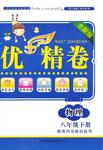
Many children use the Internet to get useful knowledge and information, and to relax in their free time. But some of them are not using in a good way. Here are some rules to make sure you are safe and have fun on the Internet.
Make rules for Internet use with your parents. For example, when you can go online, for how long and what activities you can go online.
Don’t give your password (密码) to anyone else, and never leak out the following information---your real name, home address, age, school, phone number or other personal information.
Check with your parents before giving out a credit (信用) card number.
Never send a photo of yourself to someone in e-mail unless your parents say it’s OK.
Check with your parents before going into a chat room. Different chat rooms have different rules and attract different kinds of people. You and your parents must make sure it’s a right place for you.
Never agree to meet someone you met on the Internet without your parent’s permission (允许). Never meet anyone you met on line alone. Always remember that people online may not be who they say they are. Treat everyone online as strangers.
If something you see or read online makes you uncomfortable, leave the site. Tell a parent or teacher right away.。Treat other people as you’d like to be treated. Never use bad language.
Remember—not everything you read on the Internet is true.
1. If you want a true friend on the Internet , you can ____________ .
A tell the people what your name is . B meet the people on line alone.
C write an e-mail about yourself . D get your parent’s permission.
2.It’s good for children to ________ on the Internet.
A.give password to others B.get useful knowledge and information
C.give out a credit card number D.go into a chat room as they’d like to
3.The underlined phrase “leak out” in the second paragraph may mean “________.”
A.赠送 B.泄露 C.拿走 D.出示
4.If your parents don’t agree, never ________.
A.read anything on the Internet
B.relax in your free time
C.have a face-to face meeting with anyone you met online
D.treat other people as you’d like to be treated
5.This passage is mainly about “________”.
A.How to use Computers B.Surfing on the Internet
C.Information on the Internet D.Internet Safety Rules
1.D
2.B
3.B
4.C
5.D
【解析】
试题分析:这篇短文主要针对青少年上网问题,向他们提出了几点需要注意的上网安全规则.
1.根据短文描述,可知如果要交一个真正的网友,需要得到父母的同意,故选D.
2.根据Many children use the Internet to get useful knowledge and information,及下文描述,可知作者认为孩子们上网获取有益信息是有好处的.故选B.
3.联系下文the following information,可知此处指的是泄露信息的意思,故选B.
4.根据Never agree to meet someone you met on the Internet without your parent’s permission.描述,可知选C.
5.这篇短文主要针对青少年上网问题,向他们提出了几点需要注意的上网安全规则.故选D,网络安全守则.
考点:关于网络安全问题的说明文阅读
点评:本文中长句较多,一时很难读懂句子含义,注意多读几遍,不要强求非得理解一词一句的含义,能把握文章大意就行。然后带着问题阅读短文,一般就能顺利找出答题依据。对于不能直接找到根据的问题注意联系上下文,根据短文中心总结出正确答案。


 优加精卷系列答案
优加精卷系列答案科目:初中英语 来源:同步题 题型:填空题
查看答案和解析>>
科目:初中英语 来源:同步题 题型:填空题
查看答案和解析>>
科目:初中英语 来源:同步题 题型:填空题
查看答案和解析>>
科目:初中英语 来源:同步题 题型:填空题
查看答案和解析>>
科目:初中英语 来源: 题型:
用所给词的适当形式填空(10分)
1. We often practise_____________ (play) basketball at weekends.
2. This is not your sweater. It is for _____________ (I)
3. My friend sometimes _____________(go) to her dancing lesson.
4. Mr Wu _____________ (not be) our English teacher.
5. I like reading. _____________ (read) is fun.
6. She loves music. It makes her_____________ (feel) happy.
7. Betty is my cousin. I often play with_____________ (she).
8. How many _____________ (child) names are there on the list(单子)?
9. The Green family _____________ (watch) TV every evening.
10. I want _____________ (look) after my dog well.
查看答案和解析>>
湖北省互联网违法和不良信息举报平台 | 网上有害信息举报专区 | 电信诈骗举报专区 | 涉历史虚无主义有害信息举报专区 | 涉企侵权举报专区
违法和不良信息举报电话:027-86699610 举报邮箱:58377363@163.com